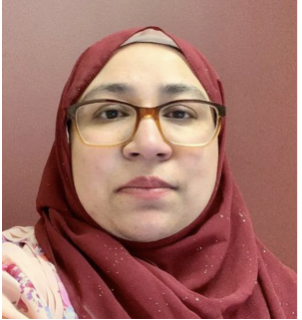Perinatal Track
Overview: This innovative track offers a collaborative and integrated training experience for residents in Psychiatry and Obstetrics & Gynecology who are passionate about advancing women’s mental health. Through interdisciplinary collaboration, residents gain expertise in addressing the psychological and emotional needs of women across the reproductive lifespan—including perinatal mental health, premenstrual and perimenopausal mood disorders, trauma-informed care, and the influence of social and structural determinants. The track emphasizes joint clinical care, cross-disciplinary supervision, and specialized didactics to prepare future leaders in women’s mental health
Goals:
-
Provide specialized training in the evaluation, diagnosis, and treatment of perinatal and postpartum psychiatric disorders, including the use of screening tools and structured diagnostic interviews.
-
Develop expertise in psychopharmacology during pregnancy and lactation, with a focus on balancing maternal mental health needs and infant safety.
-
Foster a multidisciplinary approach to postpartum mental health care, emphasizing collaboration with obstetricians, psychiatrists, and other specialists including but not limited to pediatricians, and addictionologists.
-
Support the development of a collaborative interdisciplinary care model by integrating training opportunities with other healthcare disciplines, fostering teamwork and comprehensive patient care.
-
Create opportunities to educate residents on the referral process for additional therapy services, or facilitating short term supportive therapy.
Core Curriculum
-
Clinical rotation
-
PGY-3:
-
DMC Integrated-OBGYN Resident Clinic: weekly
-
-
PGY-4/CAP-2
-
Curbside Clinic
-
Resident Supervision
-
Integrated OBGYN Didactics
-
-
-
Academic Activities:
-
Capstone Project or scholarly work related to the field of women's mental health
-
Attend Didactics regarding Women's Mental Health
-
-
Mentorship - Quarterly meetings with Track director
Tract Residents

I am deeply interested in psychiatry with a specific focus on women’s mental health and the perinatal psychiatry track. This patient population is often overlooked, with mental health struggles during pregnancy and postpartum frequently minimized or dismissed. Despite the profound impact perinatal mental illness can have on both the individual and family unit, resources and specialized care remain limited. That is why I am committed to build the perinatal psychiatry clinic to be able to deliver passionate care and advocate for increased awareness and support for women during this vulnerable and transformative stage of life.

As psychiatrists we are honored with the opportunity to form longitudinal relationships with our patients through which we can hopefully make a lasting impact. Women's mental health represents a unique clinical challenge at the intersection of reproductive, hormonal, and psychosocial factors. I am motivated by the opportunity to support patients during some of the most vulnerable and transformative periods of their lives. Through the work comprising the perinatal track, I aspire to highlight and contribute to this often-underserved area of psychiatry, with a particular interest in the treatment of substance use in the perinatal and postpartum period.
Tract Faculty

Track Director
Linda Saab, M.D. is a board-certified psychiatrist and Clinical Assistant Professor at Wayne State University Department of Psychiatry and Behavioral Sciences. She currently serves as the Academic Medical Director and Education Coordinator for Psychiatry at Sinai-Grace Hospital. In this role, she oversees medical education and training for both medical students and resident physicians, with a strong emphasis on clinical mentorship and academic development.
Her clinical practice encompasses general adult psychiatry, with expertise in anxiety disorders and perinatal psychiatry. She has a focused interest in the management of mood, anxiety, and psychotic disorders during pregnancy and the postpartum period. Her work is especially centered on the care of perinatal patients in acute hospital settings, where she is committed to advancing collaborative, multidisciplinary models of care that improve outcomes for women and their families. Through both clinical and academic roles, she strives to integrate evidence-based practices, foster interdisciplinary collaboration, and support the next generation of physicians in delivering compassionate and effective mental health care.

Tehmina Shakir, MD is a child and adolescent psychiatrist and assistant clinical professor at Wayne State University Department of Psychiatry and Behavioral Neurosciences. Her clinical and research interest is in trauma stress across lifespan. She has been awarded diplomate status with the American Academy of Experts in Traumatic Stress. In addition to working with children and adolescents with history of traumatic stress (including but not limited to childhood trauma and human trafficking), Dr. Shakir is also committed to promoting women’s health across lifespan including but not limited to prenatal and post-partum management of mental illness.

I am a board-certified psychiatrist specializing in women’s mental health, with expertise in perinatal and postpartum psychiatric disorders, including depressive disorders, anxiety disorders, bipolar disorder, ADHD, schizophrenia and co-occurring substance use disorders. Recognizing a critical gap in Detroit’s mental health landscape, we have developed a dedicated women’s mental health training track for psychiatry residents—focusing on pregnancy, postpartum care, and reproductive transitions. Alongside this work, I maintain an active clinical practice treating a broad range of conditions, with a particular emphasis on high-risk populations and complex cases with medical comorbidities.
Born and raised in Pakistan, I earned my medical degree from Liaquat University of Medical and Health Sciences and completed training at the University of Kentucky, where I received awards for clinical excellence and developed expertise in managing treatment-resistant disorders. Fluent in English, Urdu, and Sindhi, I prioritize care that respects each patient’s identity and lived experience. Through clinical work, teaching, and advocacy, I aim to bridge gaps in access while training the next generation of psychiatrists to meet Detroit’s diverse needs.